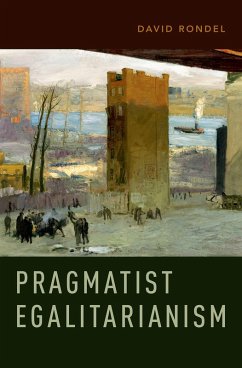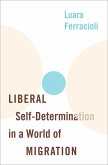Pragmatist Egalitarianism argues that a deep impasse plagues philosophical egalitarianism, and sets forth a novel conception of equality rooted in American pragmatist thought that successfully mediates it. There is a division within egalitarianism between those who regard equality as a fundamentally distributive ideal and those who construe it as a normative conception of human relationships. Despite their close connection, these different ideals may come apart. And yet, so much philosophical writing on equality is marked by what looks like a zero-sum competition for the same conceptual turf, as if the whole truth about equality must be captured by a single idea or an exclusive set of principles. One of the core arguments in
Pragmatist Egalitarianism is that we should reject the central premises upon which such disagreement turns: that equality is a single idea, that it has a fundamental locus, and that there is a singular or primary route to the achievement of a genuinely egalitarian society. David Rondel argues for a recasting of egalitarianism in light of three mutually reinforcing variables--the Institutional, the Personal, and the Cultural--each of which is best accentuated in one of a trio of pragmatists. If the three variables are mutually complicit in promoting inequality, an egalitarianism that takes this seriously will treat all three as equally (albeit differently) important in making things better. Infused with the thought of leading American pragmatists, including William James, John Dewey, and Richard Rorty,
Pragmatist Egalitarianism puts pragmatist philosophy to work in new and profoundly illuminating ways.
Dieser Download kann aus rechtlichen Gründen nur mit Rechnungsadresse in A, B, BG, CY, CZ, D, DK, EW, E, FIN, F, GR, HR, H, IRL, I, LT, L, LR, M, NL, PL, P, R, S, SLO, SK ausgeliefert werden.









